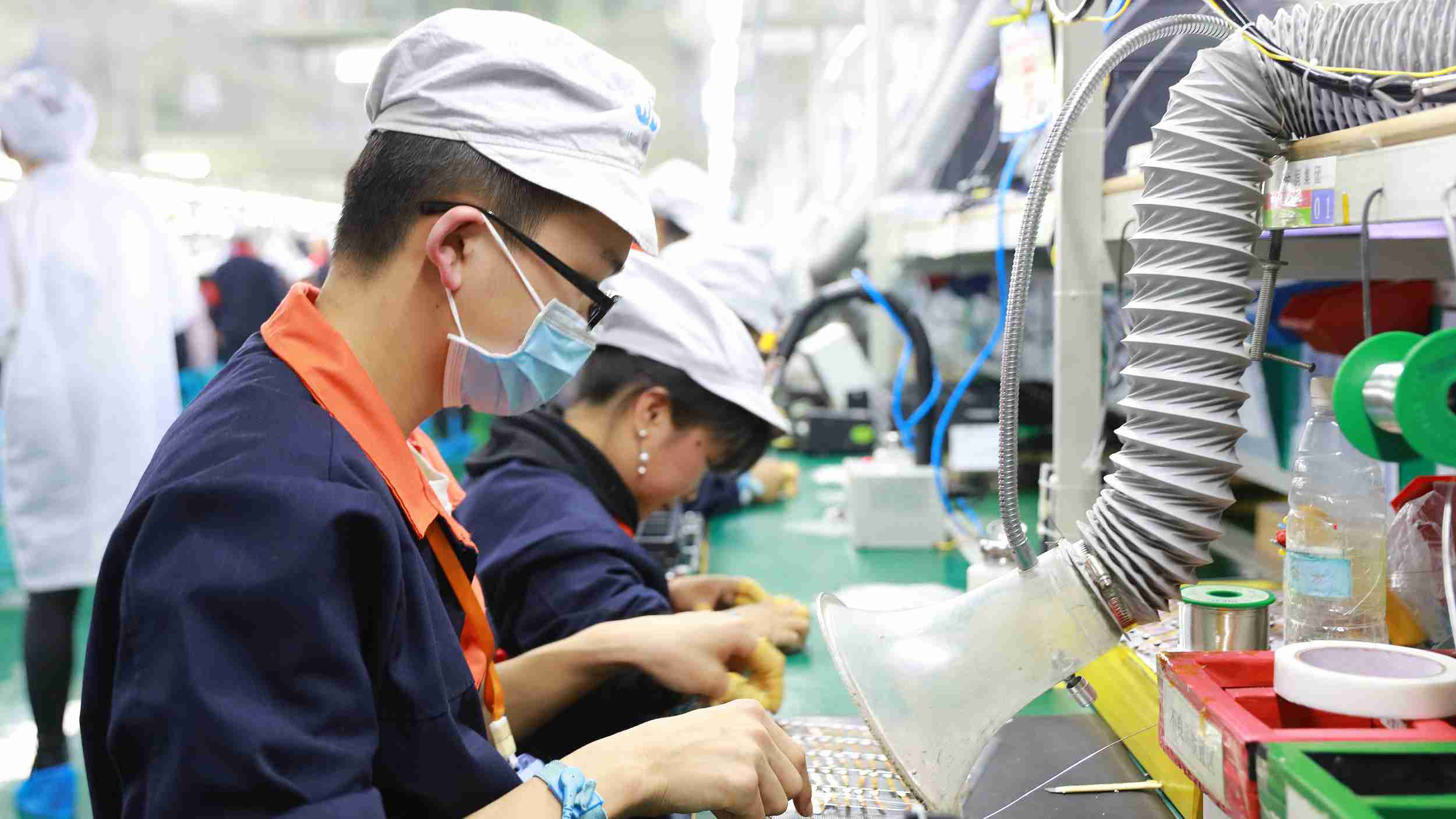
File photo: CGTN
Millions of Asian and African migrants are expected to return home whether through compulsion or voluntarily, as their job prospects evaporate due to the impact of the coronavirus, according to the International Labor Organization (ILO).
The organization warned that the migrant workers who will be forced to return home after losing their jobs, will face unemployment and poverty.
"This is a potential crisis within a crisis," said Manuela Tomei, director of the ILO's Conditions of Work and Equality Department.
"We know that many millions of migrant workers, who were under lockdown in their countries of work, have lost their jobs and are now expected to return home to countries that are already grappling with weak economies and rising unemployment. Cooperation and planning are key to avert a worse crisis."
In some of the middle-income countries where the migrants will be forced to go back, the labor markets were already fragile before coronavirus outbreak and now are further weakened by the additional strain of high levels of unemployment and serious business disruptions due to the pandemic.
In addition, their families will suffer financially from the loss of the remittances normally sent to them. Countries will also experience decreased remittances, which are vital source of income for developing economies.
According to the World Bank, remittances to low and middle-income countries are projected to fall by 19.7 percent to $445 billion, representing a loss of a crucial financing lifeline for many vulnerable households.
Due to the coronavirus crisis, remittance flows to Sub-Saharan Africa are expected to decline by 23.1 percent to reach $37 billion in 2020, while a recovery of 4 percent is expected in 2021, the World Bank said.
The anticipated decline can be attributed to a combination of factors driven by the coronavirus outbreak in key destinations where African migrants reside including in the EU area, the United States, the Middle East and China.
These large economies host a large share of Sub-Saharan African migrants and combined, are a source of close to a quarter of total remittances sent to the region, the bank said.
The ILO said policies should be put in place to protect stranded migrant workers and to ensure the reintegration of those who return home.
The organization said helping returning migrants reintegrate will reduce tensions in their home countries, where some communities may fear that returning migrants may bring virus or take jobs away.
It is estimated that there are 164 million migrant workers worldwide, nearly half of them women, comprising 4.7 per cent of the global labour force. While not all of these workers will return home after losing their jobs or for other reasons, informal ILO research in more than 20 countries indicates that many millions are expected to do so.
Most of their home countries have very limited scope to reintegrate such large numbers, and often do not have policies and systems in place to ensure effective labour migration governance and smooth reintegration plans, including for skills development and recognition.
Despite the unemployment crisis, ILO said the returning migrant workers bring skills and talent that can help their home economies rebuild better after the pandemic.
However, the key to unlocking the potential is the establishment of rights-based and orderly return and reintegration systems, access to social protection, and proper skills recognition.
This can facilitate better skills and jobs matching, hence increasing productivity for national industries, the organization said.
"With the right policies, the return of these workers can be converted into a resource for recovery," Michelle Leighton, chief of ILO's Labor Migration Department said.
"These migrants will bring with them talents and new skills, and in some cases capital, that can support efforts in their home countries to build back better. We must help these countries grasp the opportunity."


